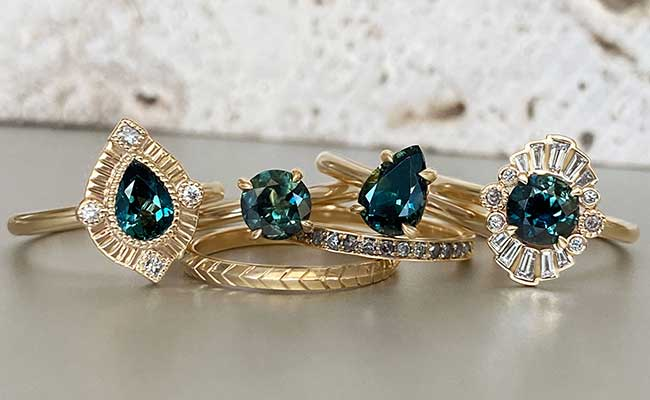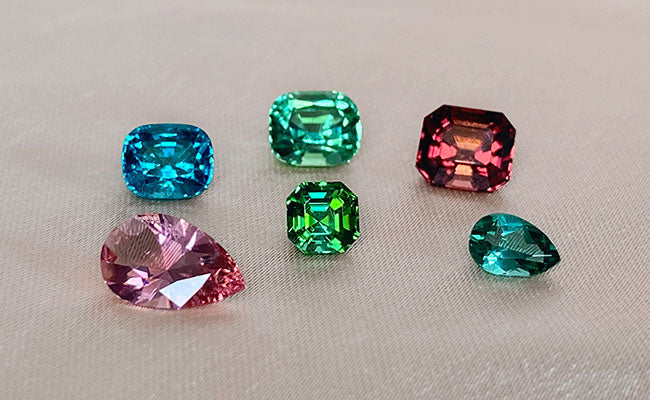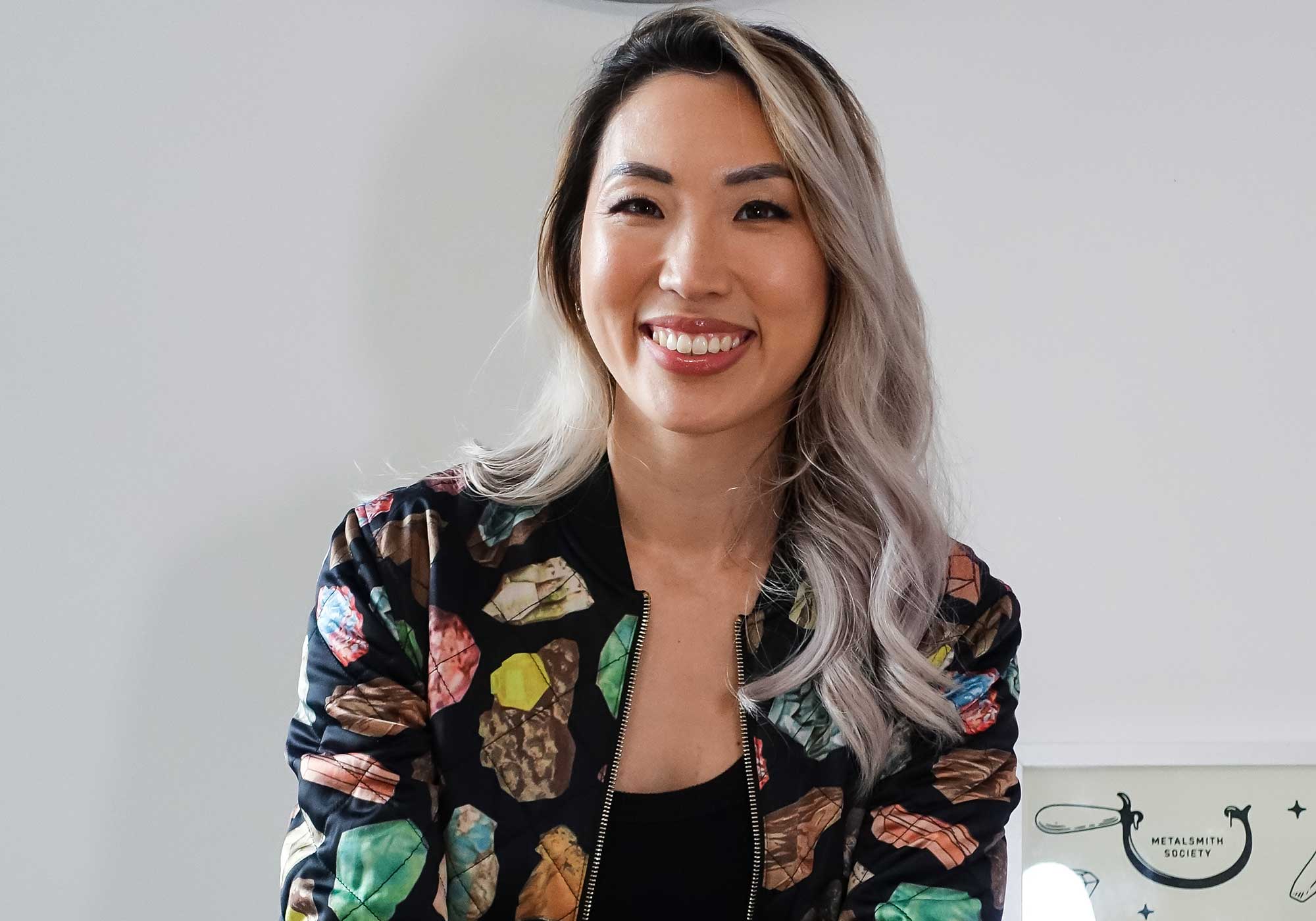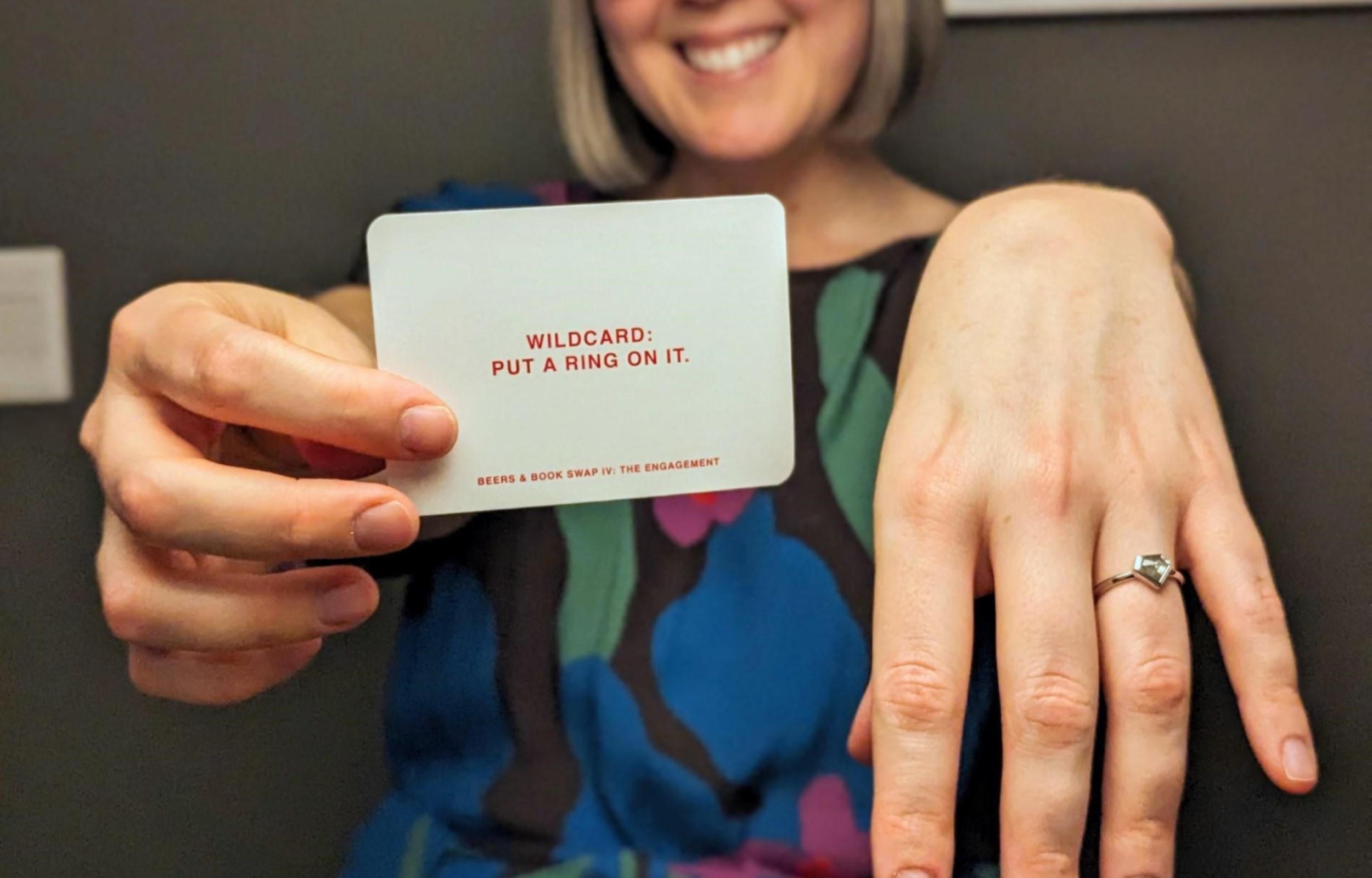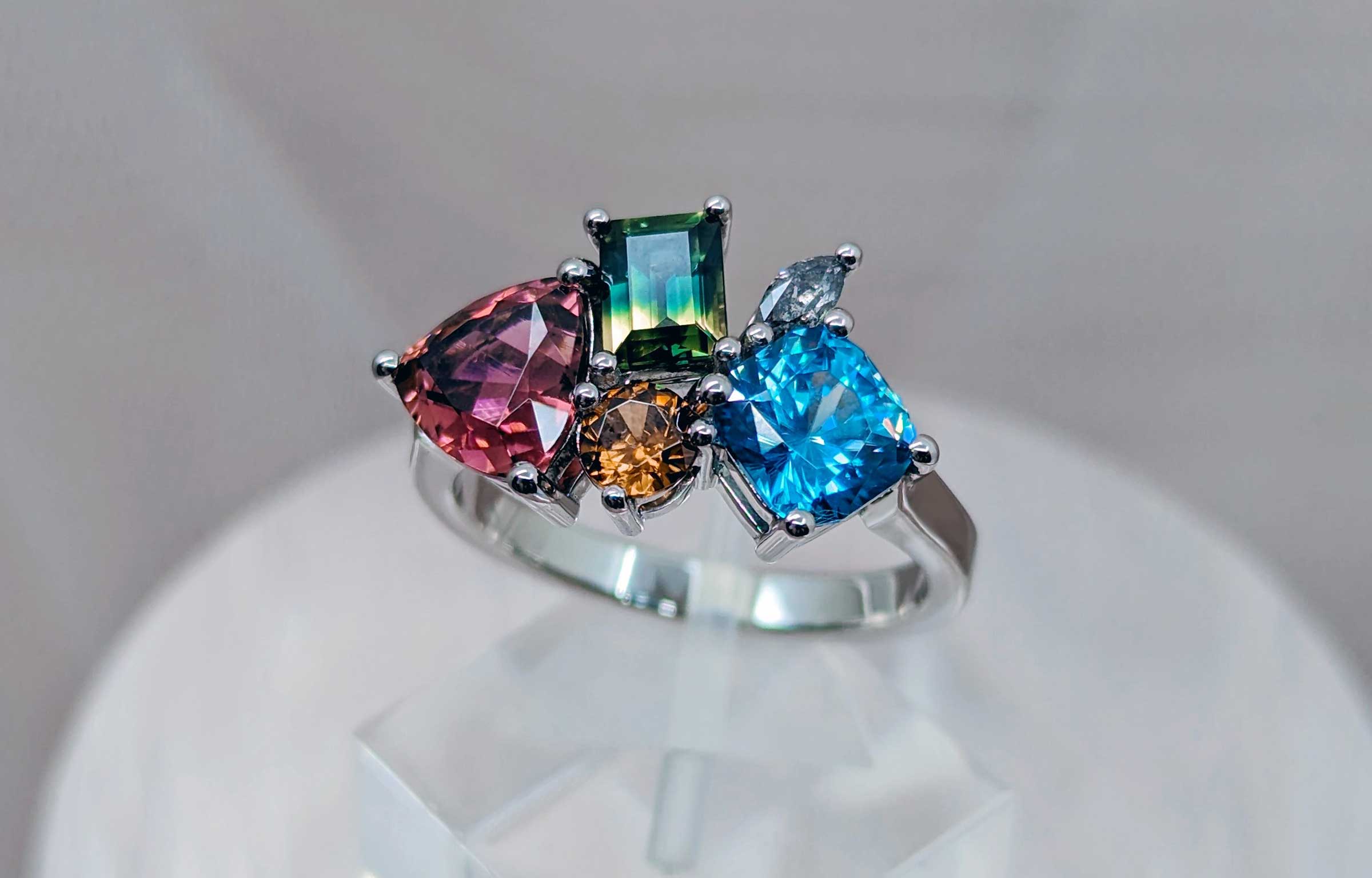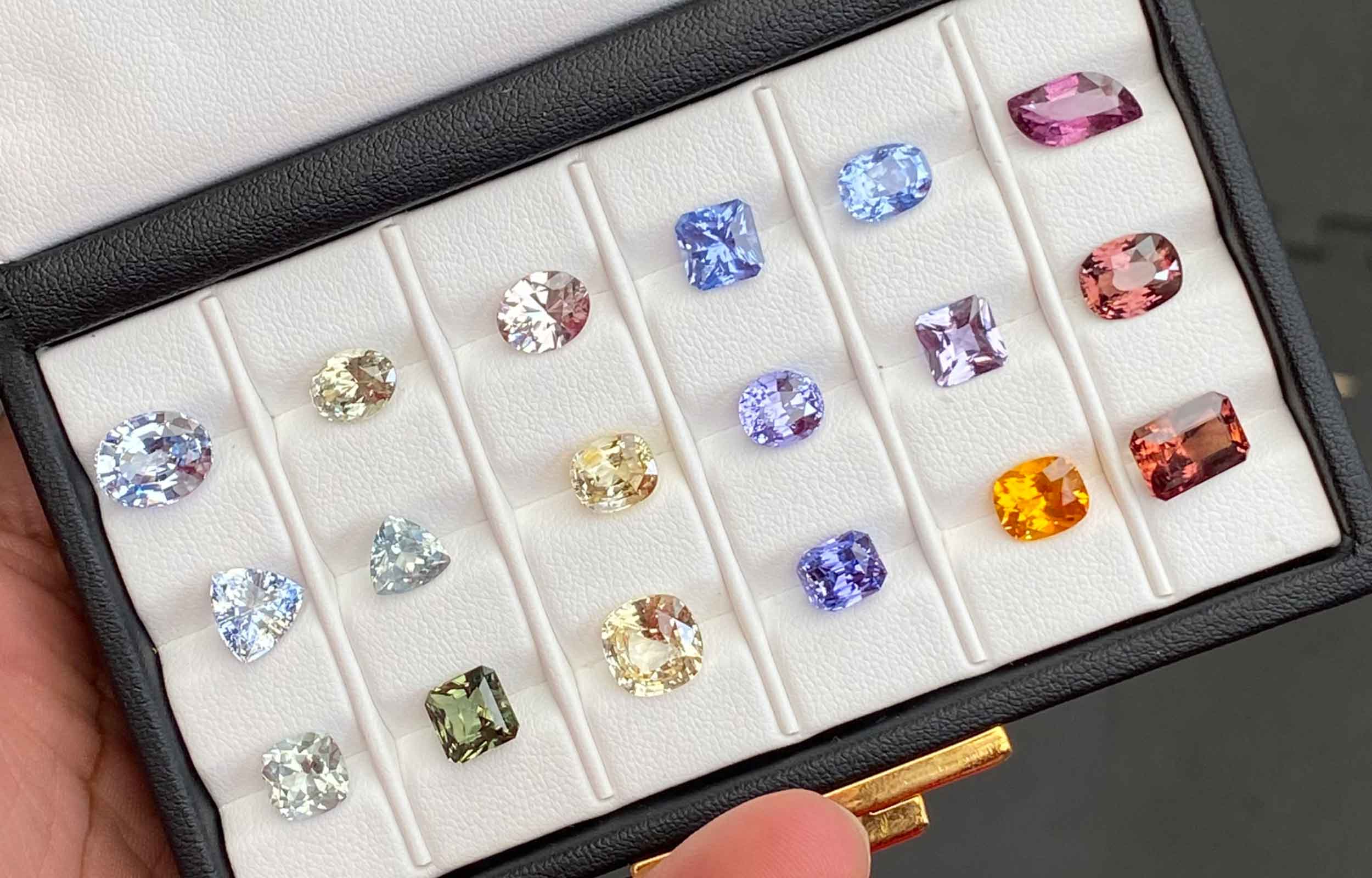
What is an ethical gemstone, really?
Nowhere is this more apparent than in the world of jewellery, where big statements are often made around certain gems being the more ethical choice. While these claims may be true in some respects, one person’s definition of “ethical” can be wildly different to the next.
So what does ethical really mean when it comes to gemstones? And how do we navigate these claims to make informed choices that truly align with our values?
We talk to two gem merchants who specialise in ethically mined, sourced and cut gemstones. We explore what ethical and sustainable gemstone sourcing can entail and how not to fall into the greenwashing trap.
Want quick answers? Click here for the summary.

First of all, it’s important to note that there's no official definition of “sustainable” or “ethical” when it comes to gemstones. One might make a blanket claim that all sapphires, for example, are more sustainable. This may be true when comparing sapphire mining to open-pit diamond mining, where some mines are so large that they’re visible from space. However, even in sapphire mining, there are a wide range of approaches, with varying levels of environmental and social impact.
“Long story short, not all mines are sustainable,” says Punala Kiripitige from The Gem Monarchy, a family-owned business based in Adelaide. Instead of using heavy machinery and open-pit mining, all their gems are mined by hand.
The Gem Monarchy owns mines in Sri Lanka and Madagascar, which allows them to guarantee an ethically sound approach, far beyond the industry standard. This includes:
- Ensuring that mines cover as little ground as possible to reduce degradation of the land
- Mining with hand tools rather than machines and explosives
- Never finishing a mine to completion, which ensures the sustainability of the land for the future
- Replanting trees, bushes and shrubbery over mine sites to return them to their natural state


Gemstones are traceable to within 3km of where they came out of the ground. Locality and providence can be shown along the production line without needing to certify the gems and any claims about treatments (or lack thereof) can be guaranteed.
“In a lot of the main mining countries like Sri Lanka and Madagascar it’s illegal to use child labour,” says Punala. “Many people call their gems ethical because of this. But there’s a lot more to ethics and sustainability than what is done as a minimum.”
Punala and his family ensure that all staff working at their mines and cutting facilities are full time, have health, financial and utility cover and have education provided for their children.
The Gem Monarchy also sources gems from Ethiopia, Nigeria, Kenya, Tanzania, Uruguay, Burma, Mozambique and Ghana. In order to verify that every stone is ethically obtained, they only purchase stones that staff have personally witnessed coming out of the ground.

Griffin Gems, headed up by Nicky Baker Griffin, is based in Perth and specialises in ethically sourced, predominantly Australian, gemstones.
“During my years as a jewellery student I fell in love with gemstones and wanted to know as much as possible about how a simple rock could be transformed into a sparkling jewel. After extensive travelling it became apparent that unsafe and unethical practices were rife for all parts of the gemstone market around the world and I wanted no part of it,” says Nicky.
“I travelled to Madagascar in the early days and went to the ruby fields. The conditions for the hand miners were disgusting with no clean water, no shelter, no sanitation and no safety equipment. Most were barefoot.
“One particular moment that stood out was seeing a mother and her toddler digging with hand tools whilst she had a baby on her in a sling. The mine was run by what I would call ‘warlords’. They had armed guards directing people forcibly. It was extremely confronting.
“I wanted to make a positive change in my own small way for my son and for future generations. With this in mind, I decided to only supply gems that meet my strict ethical standards,” Nicky says.
Nicky ensures that the suppliers she works with, from miners to gem cutters, are paid a fair price for their work and no child labour is used. Mining and fossicking areas must have water recycling or treatment plans for grey and black water, and there must be a future rehabilitation plan to return the area to its natural state.
Once the rough gemstones have been selected, Nicky uses gemstone cutters, predominantly in Australia, who use renewable energy sources for cutting and polishing.
“I travel extensively to see each part of their operations personally and regularly return to sites to see that these ideals are being maintained,” says Nicky. “Australia has a vast wealth of various gems and due to our high standard of mining, my stock is mainly Australian stones. I love nothing more than travelling this amazing country and seeing the positive change that responsible gemstone management can bring.”

As with many things in life, there are nuances. Here's the TLDR on choosing an ethically sourced gemstone for your jewellery.
What is the definition of an ethical or sustainably sourced gemstone?
There is no one definition of an ethical gemstone. A gemstone mined without the use of child labour may be labelled “ethical”. So too may a gemstone that earns a fair wage for a family, provides an education for their children, is traceable back to the source and is hand-mined from land that will be restored to its natural state after mining. Instead of taking claims at face value, ask additional questions to help you determine whether the gem you’re interested in meets your personal standard.
How do I avoid the greenwashing trap when buying jewellery?
The key is asking questions and looking for further information. Look at a business’ About page for information about their approach (or better yet, a sustainability statement). Alternatively, contact them to ask for more information on what they mean when they call their gemstones sustainable or ethical. The response you get will often make it crystal clear whether sustainability is a real priority or a marketing tactic. Vague statements and generic responses that don’t specifically address the question are a sign that the sustainability claim hasn’t been well considered.
Will a jeweller always know where their gems come from?
Not all gemstones are traceable and, for the vast majority of gems on the market, there is little information provided about the mining methods and supply chain. Where a jeweller is asked about the origin of their gems, it’s very common for them to not have that information. However, jewellers with a sustainability focus should be able to offer ethically sourced options (and explain how and why they have determined their gems to be ethical).
What should I look for in a sustainably or ethically sourced gemstone?
Ethical sourcing can come in many forms. Here are some of the things you might look for. Your gem may not tick off everything on the list, however the more you can tick off the better.
- Gems are hand mined instead of mined with heavy machinery
- Land degradation is minimised during the mining process
- The land is returned to its natural state after it has been mined
- Staff are provided with fair, clean and safe working conditions
- Staff are provided with fair pay for their work
- No child labour is used
- Facilities have water recycling and treatment plans to minimise the impact on the environment
- Renewable energy sources are used to power mining and cutting
Are lab grown gemstones ethical alternatives to natural or mined gemstones?
Yes, no and maybe. It depends how you define “ethical”. If ethical to you means that no mining has occurred (and therefore no direct degradation of the land and natural habitats as a result), then a lab grown gem may be a suitable choice for you. However lab grown gems require significant amounts of energy to produce and can have a large carbon footprint. Despite how they are marketed, lab grown gemstones may not be as sustainable as you might think. Read more about sustainability considerations around mined and lab grown diamonds.

How do I design a piece of ethical jewellery?
As a jewellery label that values sustainable and ethical sourcing, it’s important to us to have a network of suppliers who also prioritise these values. Outside of gemstones, this also translates to responsibly-sourced precious metals, sustainable workshop practices and remodelling services that use existing gems and metals rather than mining for new ones. Read more about our approach to sustainability.
If you’re searching for a piece of jewellery that’s beautiful AND kind to the planet, get in touch or book a call to learn what your ethically made custom design could look like. You’ll be so glad you did.

